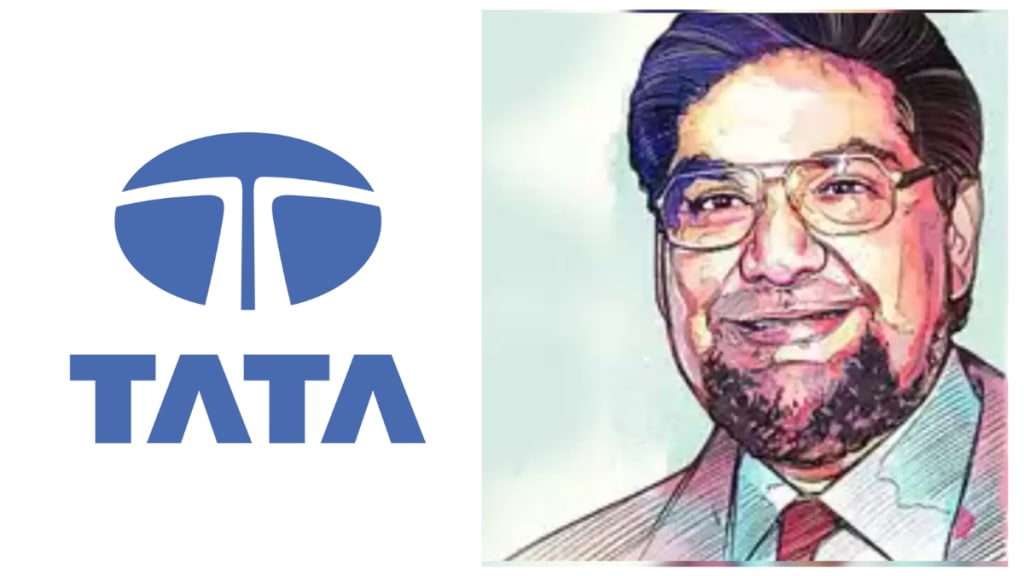In early September, when the Tata Trusts board convened to decide on reappointing former bureaucrat Vijay Singh to the Tata Sons board, few expected a split vote. But that is what happened: four trustees, led by Mehli Mistry, voted against the move. It was the first open division in the Trusts’ recent history, and it pulled Mistry, usually a background figure, to the front of one of India’s most influential corporate institutions.
As per the most recent turn of events, which is being widely reported across media, Mehli Mistry is set to be ousted from the Tata Trusts board after 3 trustees, Vijay Singh, Venu Srinivasan and Noel Tata, voted against Mistry’s term renewal. Mistry’s three-year term on the Tata Trusts board is set to end today, 28 October.
From low-profile industrialist to influential trustee
Until recently, Mistry was better known in business circles for running the M Pallonji Group, a diversified conglomerate with interests in industrial coating, dredging, logistics, shipping, insurance and pharmaceuticals. The company’s roots go back nearly a century; it operates through its flagship M Pallonji & Co. Pvt Ltd, which in the past reported revenues in the Rs 100–500 crore range and profits that kept it comfortably debt-light.
According to news reports, the group’s growth was aided by long-term contracts with Tata Power, a link that would later attract scrutiny during the Tata-Cyrus Mistry dispute. The group generated a revenue of Rs 898 crore in FY24 as per Tracxn data. News reports suggest that Mistry kept his group deliberately conservative, avoiding the high-visibility diversification that other family-run firms pursued.
A long association with Ratan Tata
Mistry’s rise within the Tata ecosystem stemmed not from his businesses but from his proximity to Ratan Tata. The two were neighbours at Colaba’s Bakhtawar building, and their friendship strengthened over the decades. In later years, as Tata’s health declined, Mistry became one of the few people regularly seen by his side.
The bond translated into institutional trust. Mistry was appointed a director in RNT Associates, Tata’s personal investment firm, in 2023, and became one of four executors of Tata’s will. The late industrialist also bequeathed to him his Alibaug home and three heirloom firearms once owned by J.R.D. Tata, Naval Tata and Sumant Moolgaokar.
The cousin who took the other side
Family ties have rarely been straightforward within the extended Mistry–Tata universe. Mehli Mistry is the first cousin of the late Cyrus Mistry, who was ousted as Tata Sons chairman in 2016. The two were close in youth but drifted apart long before the public fallout.
When the media started questioning whether Mehli Mistry had a role to play in the ousting, Mehli told ET in 2016, “The question posed to me was if I had the authority or power to remove anybody. My answer is, I do not and never did have any such power or authority.” Furthermore, in Ratan Tata’s biography titled ‘Ratan Tata: A Life’, authored by Thomas Mathew, he has mentioned how Tata wanted Mistry to sever all relations with his family company, the Shapoorji Pallonji Group, ensuring a clean and legally sound separation.
Cyrus Mistry’s camp accused Mehli’s companies of benefiting from preferential Tata Power contracts. Both Mehli Mistry and the Tata Group denied the allegations, but the episode hardened perceptions, within the Parsi business world and beyond, of Mehli as a loyalist to Ratan Tata rather than to family.
The new voice inside the Trusts
Appointed trustee of the Sir Ratan Tata Trust and the Sir Dorabji Tata Trust in 2022, Mehli Mistry joined their executive committee two years later. His role expanded quietly until this year, when his bloc of trustees began calling for greater transparency in the Trusts’ functioning and stronger representation on the Tata Sons board.
As widely reported in the media, minutes of the meeting show Mistry expressing disappointment that Noel Tata, the current chairman of the Trusts, did not support his nomination to the Tata Sons board. His faction’s demands include access to Tata Sons board deliberations and a clearer strategy on the group’s long-term governance, issues that have gained urgency as the RBI’s listing deadline for upper-layer NBFCs, including Tata Sons, expired at the end of September.
Government interest and an unsettled truce
The internal divide prompted a rare government intervention. Another instance widely reported by news organisations was that, earlier this month, Home Minister Amit Shah and Finance Minister Nirmala Sitharaman met Noel Tata, Venu Srinivasan, Tata Sons chairman N. Chandrasekaran and trustee Darius Khambata to urge stability in an entity seen as systemically significant to India’s corporate economy.
The board met again three days later, keeping discussions to philanthropic approvals worth over Rs 1,000 crore and steering clear of governance issues. But the larger disagreements, over representation, control and the possible listing of Tata Sons, remain unresolved.
Associates describe Mistry as reserved, detail-oriented and wary of publicity. He rarely speaks at public forums and avoids any media exposure. His push for reform within the Trusts, they say, stems less from ambition and more from a conviction that Ratan Tata’s vision of consensus management risks being diluted in transition.
With several trustees’ terms ending this month, the coming weeks could determine whether Mehli Mistry consolidates his influence or retreats once again into the discretion he has long preferred. Either way, a businessman once content to operate in the background now holds an outsized role in shaping how the Rs 30 trillion Tata empire governs itself in the post-Ratan Tata era.
Readers must note that instances referred to in this article are sourced from media reportage on the issue. FinancialExpress.com has not independently verified these reports.
To the best of our knowledge, neither the Tata trust members nor the government has issued any statement on the rift. We will share updates as soon as any authoritative information becomes available.

